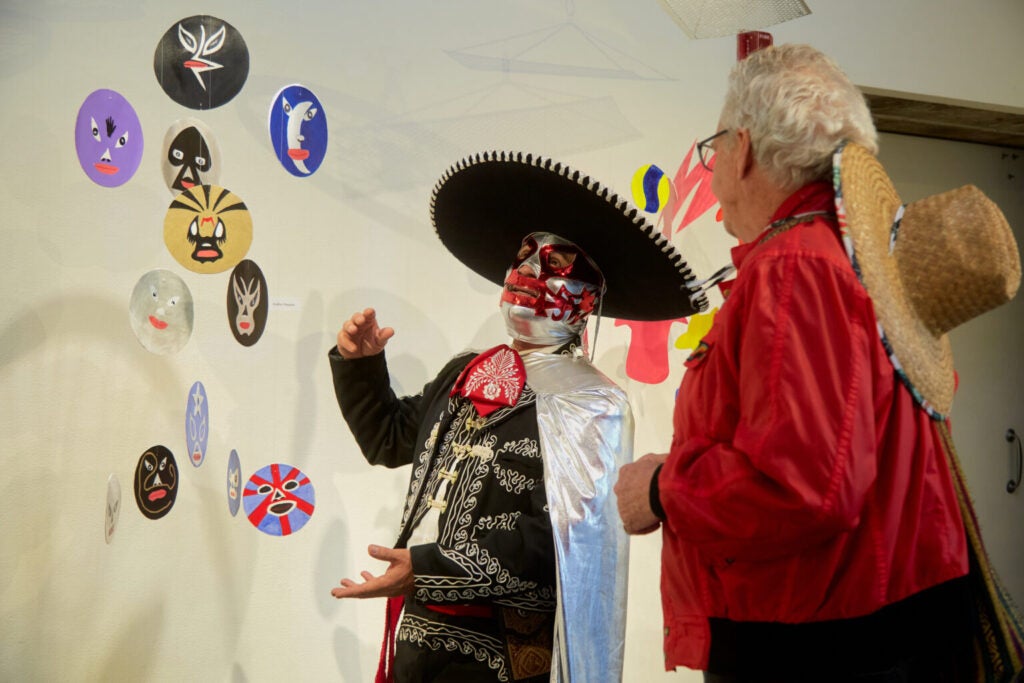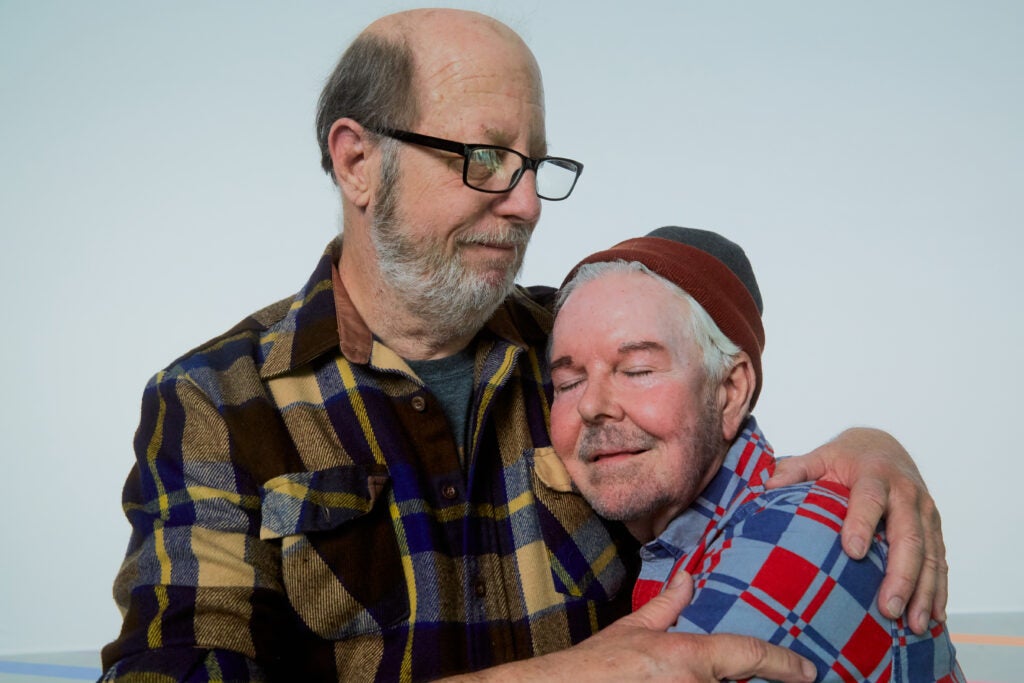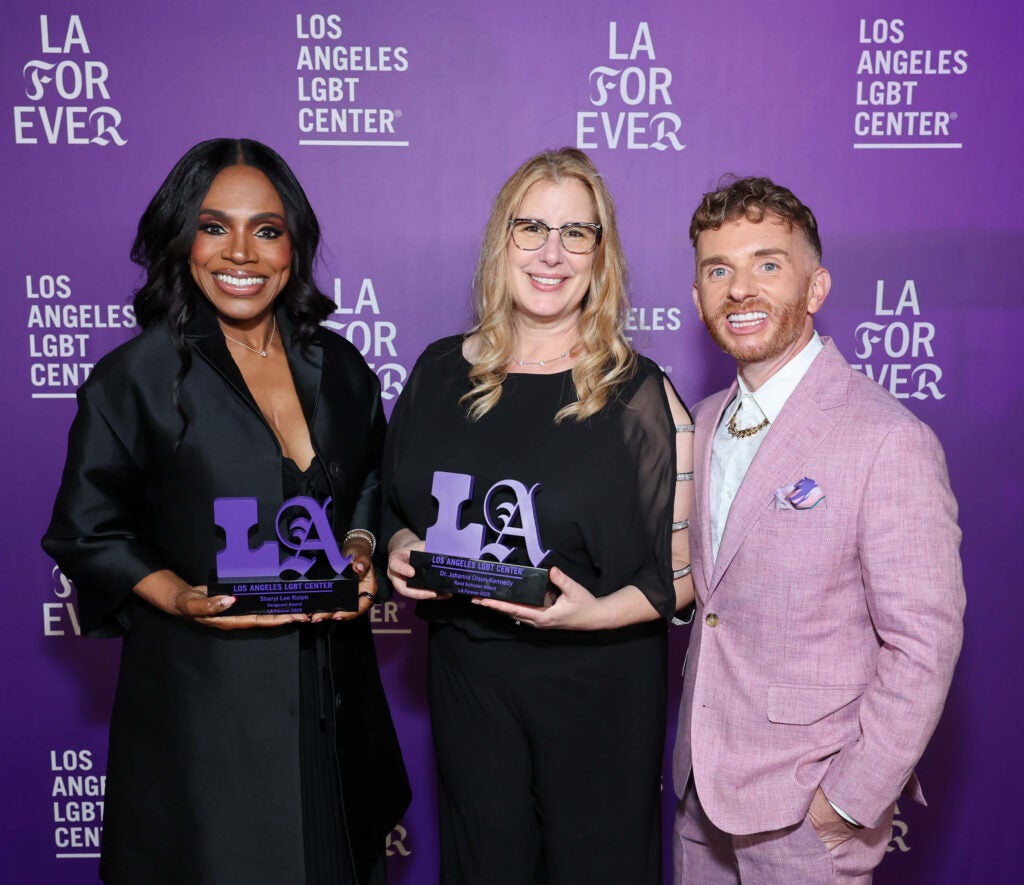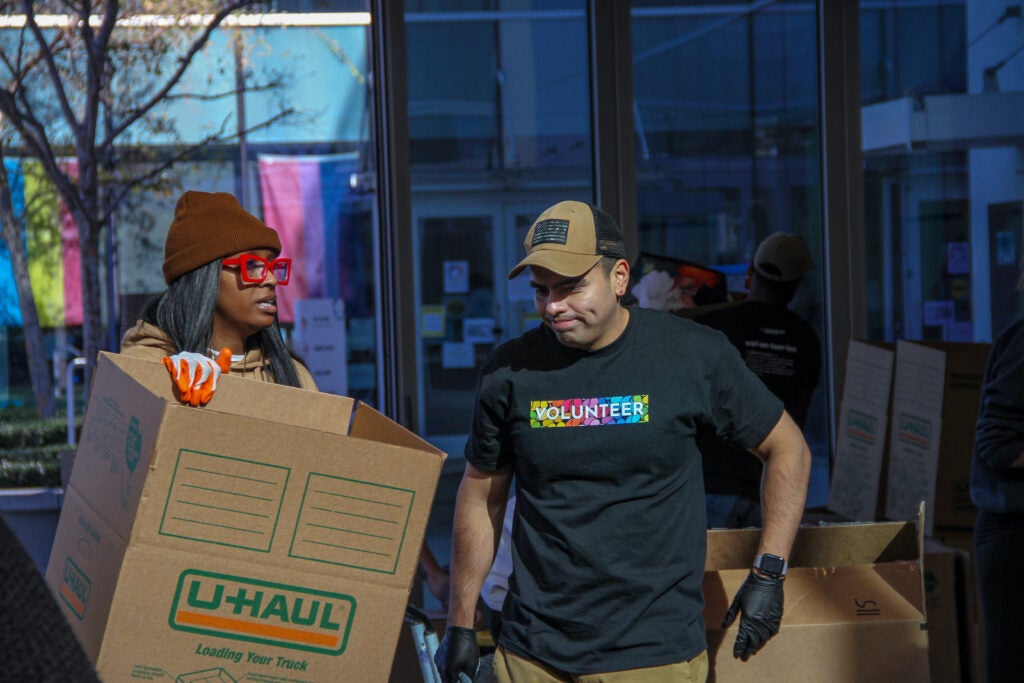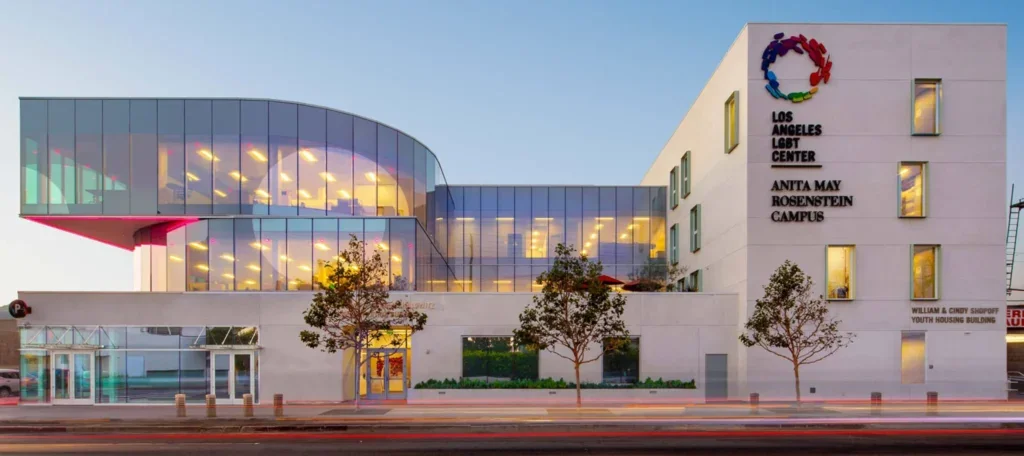Each November 11, we honor those who have served in the military, acknowledging their contributions to our country and underscoring the fact that all who served have sacrificed and done their duty. The name Veterans Day notably does not include an apostrophe, according to the U.S. Department of Veterans Affairs, because it is not a day that belongs to veterans, but is instead a day to honor all veterans for their service.
For many LGBTQ+ veterans, however, that recognition has historically been harder to come by. In 1993 during the Clinton administration, the “Don’t Ask, Don’t Tell” law was passed barring gay and lesbian military personnel from openly serving. It wasn’t until its repeal by President Barack Obama in 2011 that many service members, who had been previously dishonorably discharged, became eligible for benefits. Some remained afraid to seek them out because of their experiences with outright homophobia and transphobia during their service.
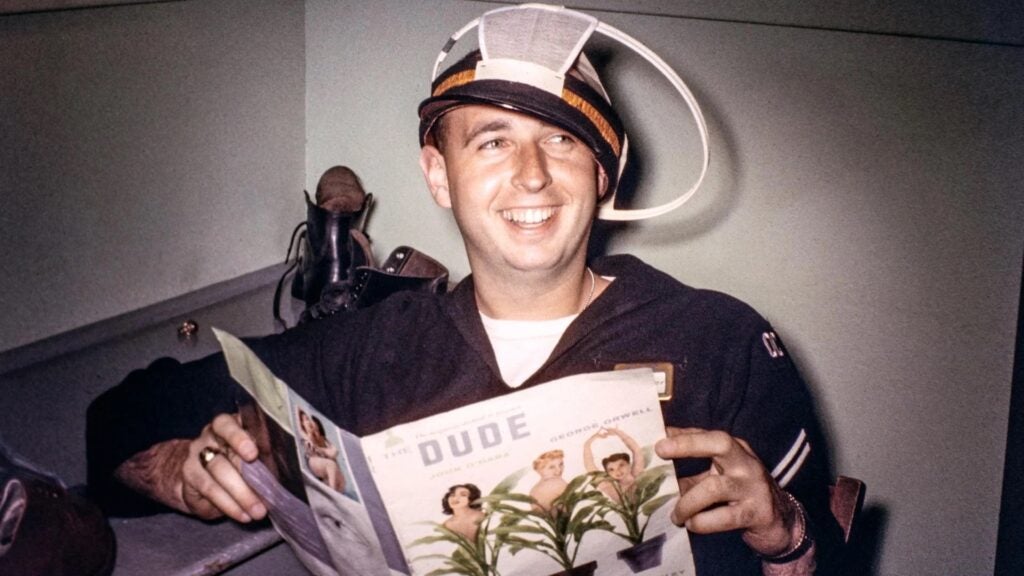
Our Service, Our Stories
Learn more about the experiences of LGBTQ+ veterans in Our Service, Our Stories: The Evolution of the LGBT Military Experience, filmed, directed, and edited by the veteran clients of the Los Angeles LGBT Center.
The Los Angeles LGBT Center has a long history of offering programming and services to LGBTQ+ veterans, including case management and provider partnerships to ensure they receive the benefits and care they literally fought for. The Center’s Senior Services department is also home to what is believed to be the first LGBTQ+ color guard in the U.S. and operates a support group open to all veterans.
“It is not common for LGBTQ+ veterans to be accepted amongst their peers, even today,” says Jonathan Willet, the facilitator of the group. “We provide veterans—whether they are LGBTQ+ or not—a safe place to come together, share their experiences, and bond with one another.“
Below, in honor of Veterans Day, members of the group share their experiences as LGBTQ+ veterans and what they wish more of us knew about their service.

Jonathan Willet, 40
Can you describe your service for us?
I joined the U.S. Air Force shortly after 9/11. The country was on high alert, and no one really knew what was going to happen next. This was also during the time of “Don’t Ask, Don’t Tell.” I knew that joining the military meant going back into the closet, but I was willing to do that in order to serve my country. I served as an Aircraft Armament Systems Specialist, but after nearly four years, the Air Force found out that I was gay. That made my time in the military very rough, and they eventually kicked me out right before my fourth year.
What has your experience as a veteran in America been like?
Truly it has been a mixed vibe. Most of the public appreciates the service I did, but there were a few who still couldn’t get past my sexuality. Thankfully, even though I was separated from the military, I still have full medical benefits at the VA. Having previously been a drug-addicted homeless vet, the VA provided me with the treatment that I needed to change my life around.
What do you wish more people knew about our veterans?
LGBTQ+ veterans experience various forms of PTSD that, for the most part, their straight counterparts do not. As a result, these challenges don’t receive the exposure or acknowledgement that they deserve. I hope that more can be done for LGBTQ+ veterans in the future so that they can get the help and support they need.

Michael LaBorde, 66 (right)
Can you describe your service for us?
I was a very lucky person, and I drafted for the Navy. I served for four years in Corpus Christi, Texas and 2 years reserved.
What has your experience as a veteran in America been like?
When I first got out of the Navy, I was really afraid because I didn’t want anyone to know that I was gay. That fear kept me away from other veteran activities. The Center and its support for LGBTQ+ veterans has been incredible.
What do you wish more people knew about our veterans?
I wish people knew more about the Center’s veteran’s support group, because a lot of this was hidden when we were back in the service. There should be more understanding of us gay folks in active duty. I wish there were more people out today.

William Anderson, 68 (second from right)
Can you describe your service for us?
I served for 21 years in the California National Guard, with various active-duty missions.
What has your experience as a veteran in America been like?
My experience has been positive. It’s allowed me to grow beyond what I thought I could achieve without being in the military. The reserve component allows the person to grow, both in terms of their military career and as a civilian.
What do you wish more people knew about our veterans?
Most veterans, even if they don’t show it, have sacrificed much in the realm of mental health and physical health. That in itself deserves a level of respect that many people cannot understand.

Eddie Cruz, 77 (second from left)
Can you describe your service for us?
It was my first job after arriving from the Philippines in the ‘70s. I was drafted to the Army, but I chose to join the Air Force instead so I didn’t have to go to Vietnam.
What has your experience as a veteran in America been like?
I feel great, because everybody is appreciative of your service to the country.
What do you wish more people knew about our veterans?
We get a lot of respect, but we don’t get as much help as we need. It’s getting better, though.

Neil Beecher, 89
Can you describe your service for us?
I served from 1957 to 1959. The first year was magnificent, because that’s where I met my husband, and we were able to travel around together in our free time outside of service. It gave me a tremendous amount of experience.
What has your experience as a veteran in America been like?
Here at the Center, I’ve been able to proudly identify as a veteran. Before the Center, I didn’t really identify as a veteran, but being here allowed me to be my true self.
What do you wish more people knew about our veterans?
I wish they knew that the time we spent in the service was a time when we were able to grow, but we were practically in a different world. We were taken away from our families and friends. For a lot of us, coming back to civilian life is a big readjustment.

Warren Tymony, 70
Can you describe your service for us?
I served in the Air Force for two years during the Vietnam era. I was stationed in Arkansas.
What has your experience as a veteran in America been like?
It’s been very difficult. Because it was during the Vietnam era, it was the age of rebellion against the military force. We were never welcomed home. But recently, the public has been more grateful.
What do you wish more people knew about our veterans?
I wish more people knew our sense of patriotism, our loyalty to our nation, and our courage.
Read More
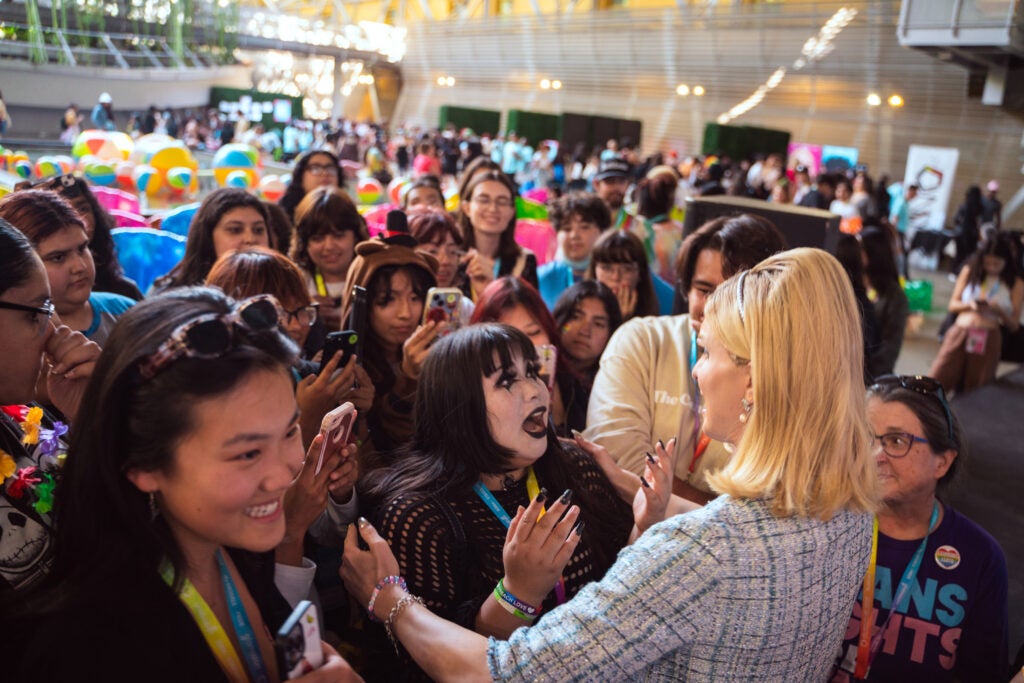
Dylan Mulvaney, Hayley Kiyoko Inspire More Than 1,000 LGBTQ+ Youth and Allies at 31st Models of Pride Festival
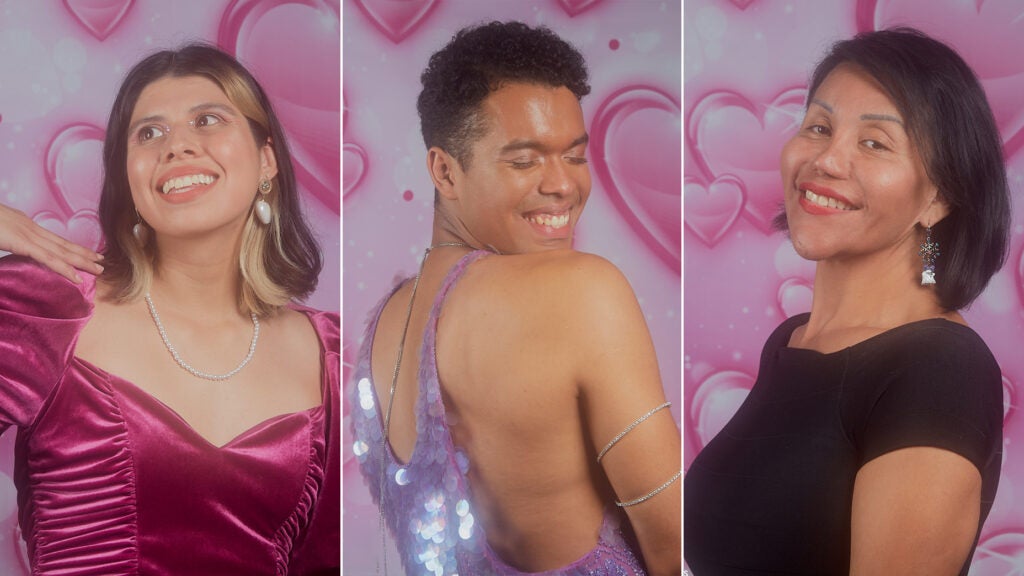
Portraits of Pride: Honoring Latinx Heritage Month
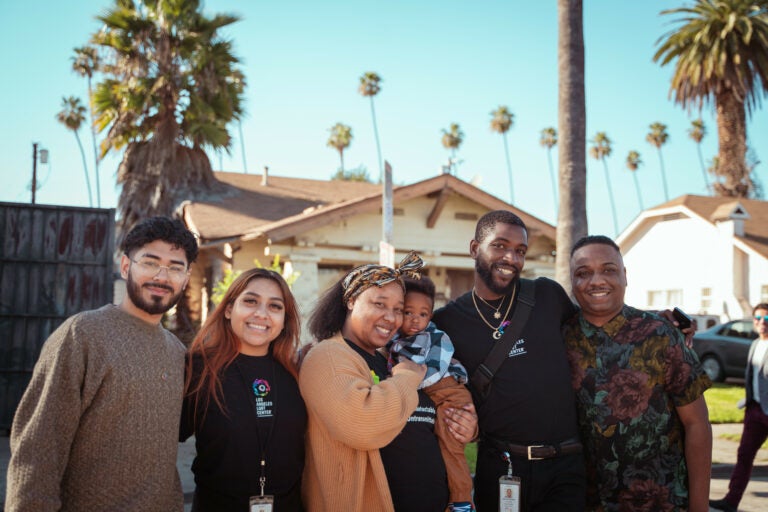
Center South Celebrates Three Years of Service in South Los Angeles
